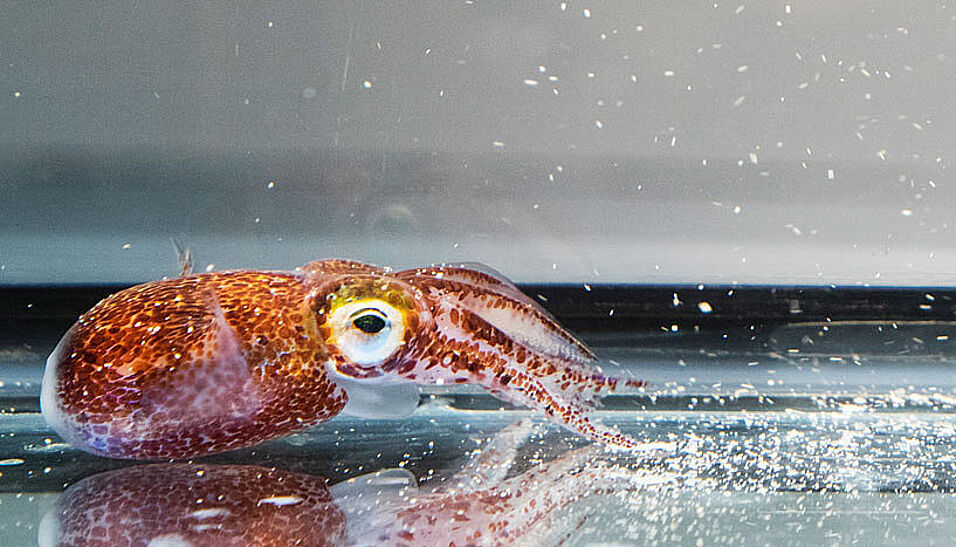In an effort to understand just how animals co-evolved with bacteria over time, an international team of researchers have turned to the Hawaiian bobtail squid, Euprymna scolopes. The scientists sequenced and analyzed the genome of this model organism. Together with the already existing genome of the octopus, this shows that the last common cephalopod victim has undergone a major reorganization of the genome. "We found that this 'upgrade' produced some key genes that may have contributed to the development of the complex brain, but at the same time, this reorganization was associated with the expansion of genome size, which was also independent for squid and octopus," explains Oleg Simakov from the Department of Molecular Evolution and Development. In the study, the scientists show in particular the genomic signatures of the evolution of a unique organ, the luminous organ. This forms a symbiosis with a specific bacterial strain, Vibrio fischerii, which emits light, and occurs only in very few squid species. Euprymna thus controls the light emission and use it both to hunt, and to deceive his predators.
Symbiotic Organs Shaped by Distinct Modes of Genome Evolution in Cephalopods: Belcaid et al, Proceedings of the Academy of Sciences (PNAS).

